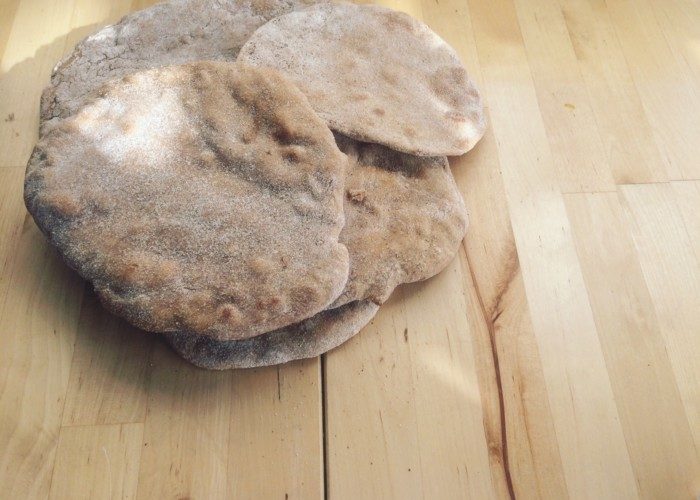So, you’ve finally taken the plunge to get into the world of one of the most daunting ferments… SOUR DOUGH BREAD. Out of all the ‘pets’ I have at home which need feeding, shaking, tending… it took me some years to even step close to the idea of bread – the high-maintenance ferment which needs some regular care.
Before considering getting a dog or any other pet, I think its great to start of with a sourdough starter!!
My other steady kitchen pets include milk kefir, tibicos (water kefir), kombucha, multiple yogurt varieties… those that are living, need attention and feeding on their individual basis, while at the same time are relatively fool-proof. I can leave my milk kefir grains in the fridge for months without a proper change of milk. They contently waits in the fridge and hibernates until I’m ready for them again. Kombucha SCOBYs just a mellow and hang, brewing in the corner…slowly expanding and multiplying formations of her friends and children.
And sourdough? Why have I felt it so intimidated in the past?!
Perhaps the time that goes into it. The fear of killing it from improper feeding. The strict and multifaceted regime of feeding and folding…then baking.
As Edible Alchemy set out on one of our Microbial Circus Tours – we met up with other ferment enthusiasts who were doing some fun things with sourdough… that spurred the keenness to start it up again. But how to travel with this bubbling-glop?
When we arrived at Vallanes, the organic farm in north-east Iceland, we were introduced to our lovley Cornelius. A Spanish sourdough that is a confirmed 150 years old and said perhaps even double that! We were shown how to free style with this living-glop and add different kinds of flour; whole wheat, barely, almond even… and never measure, just feel. During our stay there, each morning experiments with the dough were made and some with better results than others. I felt my time with Cornelius wasn’t over even thought it was at the farm, so I put some of him in a mini jar and brought him back to Berlin where I’m continuing to feel my way around this active batter. What is the proper texture. And how to get those bubbles JUST RIGHT! It’s now been years since inheriting Cornelius and he is as strong as ever as well as has expanded into many other homes all around the world! (you may also know Cornelius as Katy, or others rename it as Herman!)
Here I will share one of the sourdough pita recipes! They are easy to prepare and make and make the perfect food-scoops or pockets.
Ingredients
290g water
60g active sourdough starter
25g/2 Tbsp. olive oil
180g whole wheat flour
180g white flour
1 ½ Tsp. Salt
How To
Start by mixing water, starter and olive oil in a big mixing bowl. Add the flours and stir until the flour is incorporated. Let sit for a 30min autolyse (that helps form a nice elastic dough). After that add the salt and mix well.
Do three slap and folds. Fold the dough onto itself into the middle of the bowl, then rotate the bowl about a quarter circle and fold again doing so for about two turns.
Let the dough rest for 30min – another slap and fold – rest 30min – and the third slap and fold.
Now let the dough ferment at room temperature for 3-5 hours (this depends on how cold or warm your kitchen it is. If its warm, less rising time. If its cooler, a longer rising time), or overnight in the fridge.
Turn the dough out onto a floured surface, gently shape it into a rectangle or roll and divide into 8 pieces, using a little flour if necessary. Gently roll the pieces into 8 little balls and let them rest under a moist tea towel.
Preheat the oven as hot as it gets, preferably 250°C , with a cookie sheet upside down or a pizza stone on the middle rack for 30min.
Flatten the little dough balls into pita breads, about 1cm thick (don’t roll them out too thin or they won’t inflate).
Slide them onto the preheated cookie sheet/ pizza stone, usually you can fit 4 at a time and bake for 5-7 min or until slightly browned.
Enjoy them right away or store them under a moist tea towel, so they don’t become too hard.


Hi Alexis!
This is Chris Blackstock. Meg and I have been nurturing the sample of Katy that you gave us to leavening strength. It took a few days (we think she wasn’t happy with all of the traveling/temperature changes) but we knew she was ready when she doubled/tripled in size after yesterday’s feeding.
At any rate, I made a loaf of sourdough in our dutch oven this morning and it is fantastic. We can’t keep our hands off it. Thank you again for the gift, and safe travels back to Germany.
Hey Chris!
Yay! This is so wonderful to hear! Sounds like you have all the right equipment and everything to make great and consistent bread! Enjoy Katy and the many tastes – let me know if you come up with some super-ingenious recipe! i would love to try it.
best,
Alexis
It’s nothing fancy, but I’ve been using Mark Bittman’s No-Knead Bread recipe with a dutch oven. I’ve made three loaves so far that have all turned out really well.
http://cooking.nytimes.com/recipes/1016271-speedy-no-knead-bread
If you’re sharing your sourdough starter..I’d love some. I’m having trouble starting my own.
hey there Sheila – depending where you are i can get you some very active 150 year old Icelandic sourdough culture for 5euro. message me at [email protected] and we can set you up
Hi Alexis,
I’m surprised to read that keeping a sourdough culture is so daunting compared to other ferments and it’s an encouragement to me to try other ferments than sourdough!
Just wanted to share a tip I got a few months back: feeding your starter (wholewheat) Rye flour instead of normal wholewheat or general purpose flour makes life much easier. A few months down the line and I can confirm: once your starter is up and running, you can neglect it in the fridge for over a week and it will still be sweet and yeasty, ready to start a bread for you.
Best, Jonas
Thanks for the tip and sharing this with the community Jonas! Good to know next time im going on a week long travel :)!
Thankyou for this pita recipie, my mom used to make it but I never tried and a sourdough version is right up my alley!